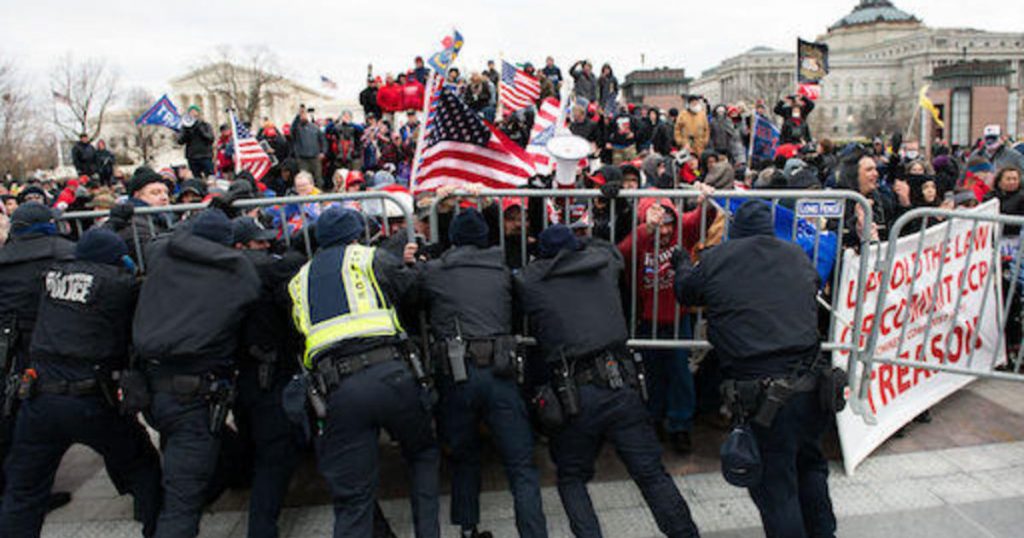The sentencing of a Jan. 6 defendant by U.S. District Judge Colleen Kollar-Kotelly in March highlighted the fragility of democracy and the need to protect it. Kollar-Kotelly mentioned the controversy surrounding the 2000 election between George W. Bush and Al Gore as an example of a peaceful transfer of power, contrasting it with the insurrection that occurred on Jan. 6 at the U.S. Capitol. Despite no one being charged with the federal crime of insurrection, judges and witness testimonies are warning of a risk to democracy as the 2024 election approaches.
Former President Trump’s campaign pledge to issue pardons and free Jan. 6 defendants if he wins reelection has colored arguments in the cases. Witnesses like retired U.S. Capitol Police Sgt. Aquilino Gonell have testified about the impact of Trump’s promises on the judicial proceedings. Another witness, former Washington, D.C., Metropolitan Police Officer Michael Fanone, has expressed concerns about Trump’s inclusion of pledges to pardon Jan. 6 defendants in his campaign speeches, calling it inciteful language that could be used to target individuals like himself if Trump holds office again.
Judges in Jan. 6 cases have spoken out against misinformation and conspiracy theories surrounding the 2020 election and the Capitol riot. They have criticized the distortion of facts and the attempts to rewrite history, cautioning about the dangers of spreading false narratives. Judge Royce Lamberth condemned Trump’s claims of being a political prisoner and accused the court of infringing on his rights as offensive and preposterous. There are concerns that election-year rhetoric advocating for Jan. 6 defendants could incite threats against judges, court staff, and witnesses.
Defense attorneys representing Jan. 6 defendants have pushed back against the warnings issued by judges and witnesses, calling them fear-mongering and unsupported by evidence. They argue that after years of prosecutions and the lack of instances of defendants returning to D.C. to cause harm, the concerns raised by judges are unwarranted. However, vigil attendees outside the Washington, D.C., jail supporting Jan. 6 defendants have echoed the sentiments of the judges regarding the potential repercussions of future incitement by Trump supporters.
The judiciary branch plays a critical role in preserving the rule of law and the administration of justice in times of democratic fragility and attacks. Threats against judges and their families have increased significantly since Jan. 6, raising concerns about the safety and integrity of the court system. As the criminal cases of Jan. 6 rioters continue, federal judges persist in referencing Trump’s involvement in inciting the events of that day and holding his allies accountable. The Supreme Court’s review of Trump’s defense claims of presidential immunity has delayed his criminal trial, but the cases of over 1,069 defendants charged in connection with the Capitol riots are ongoing.


